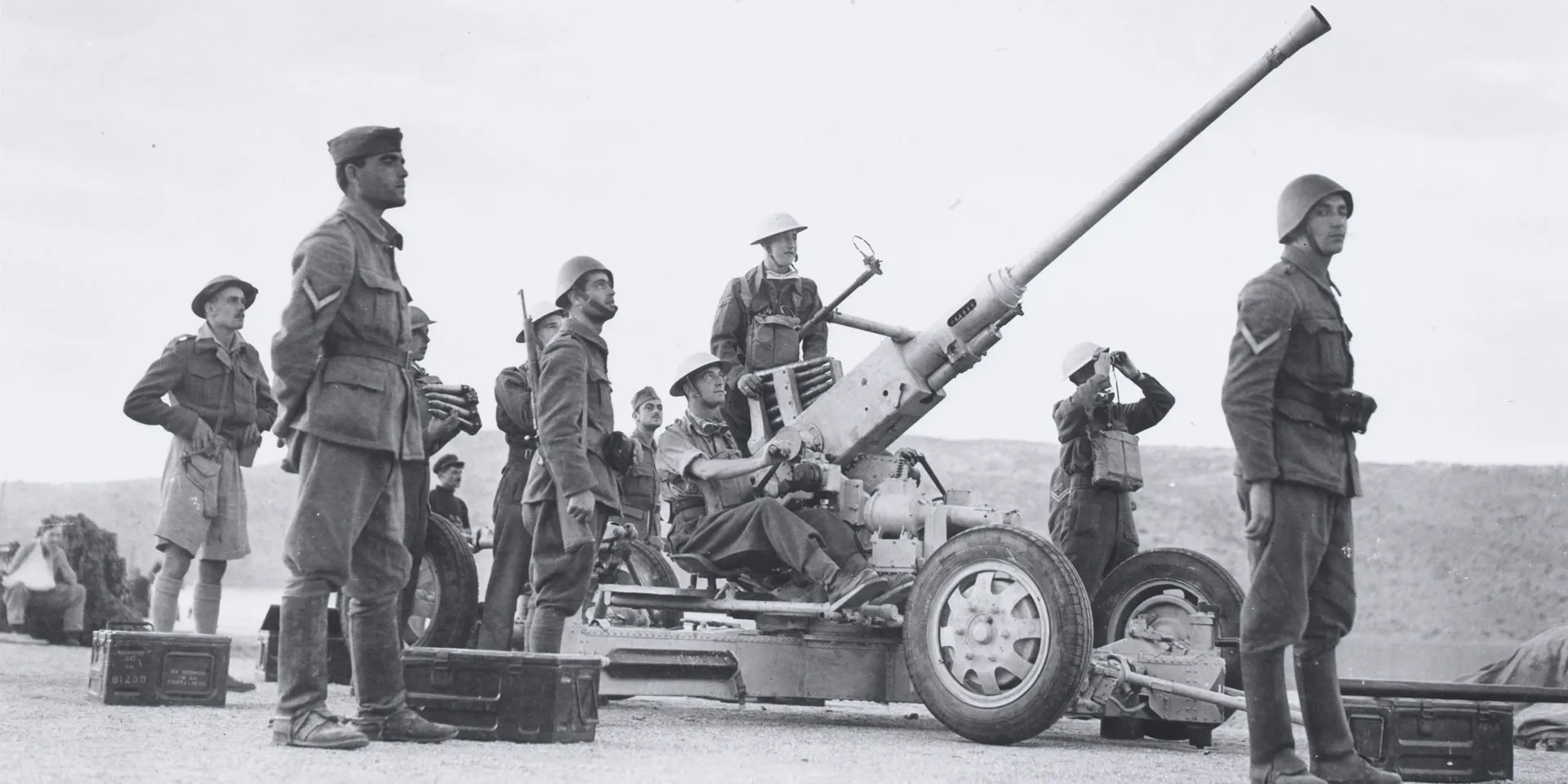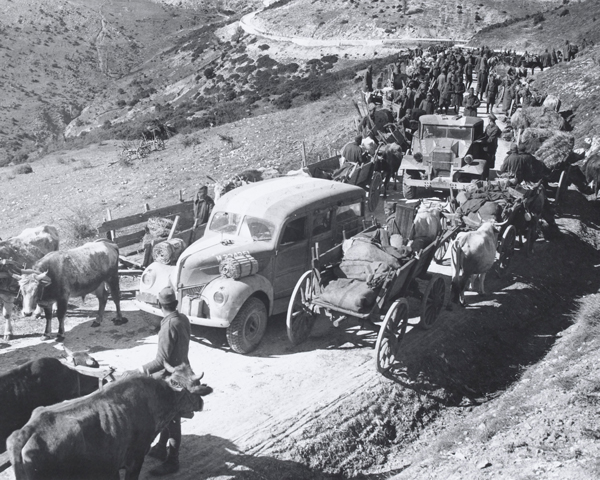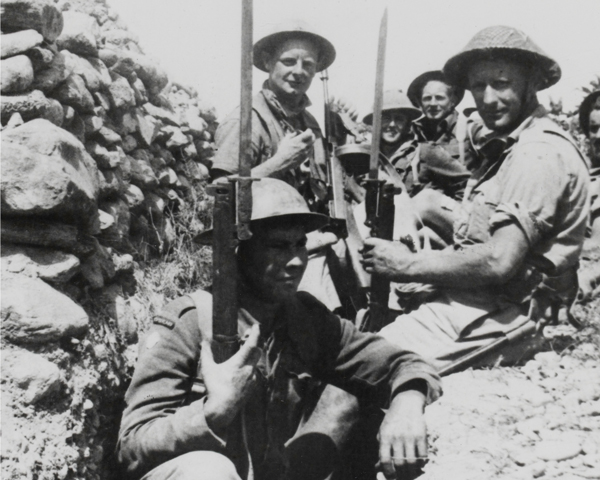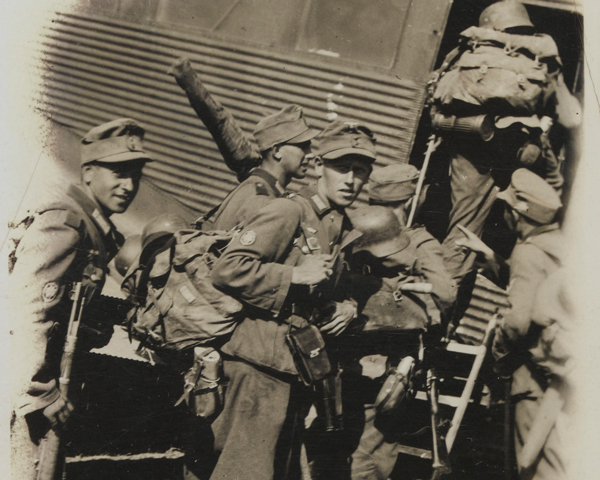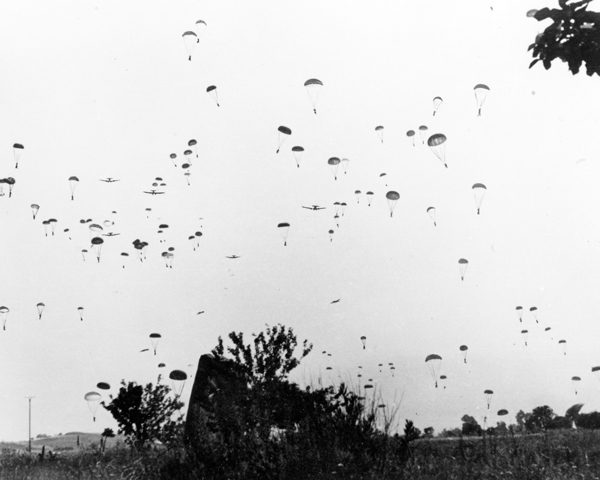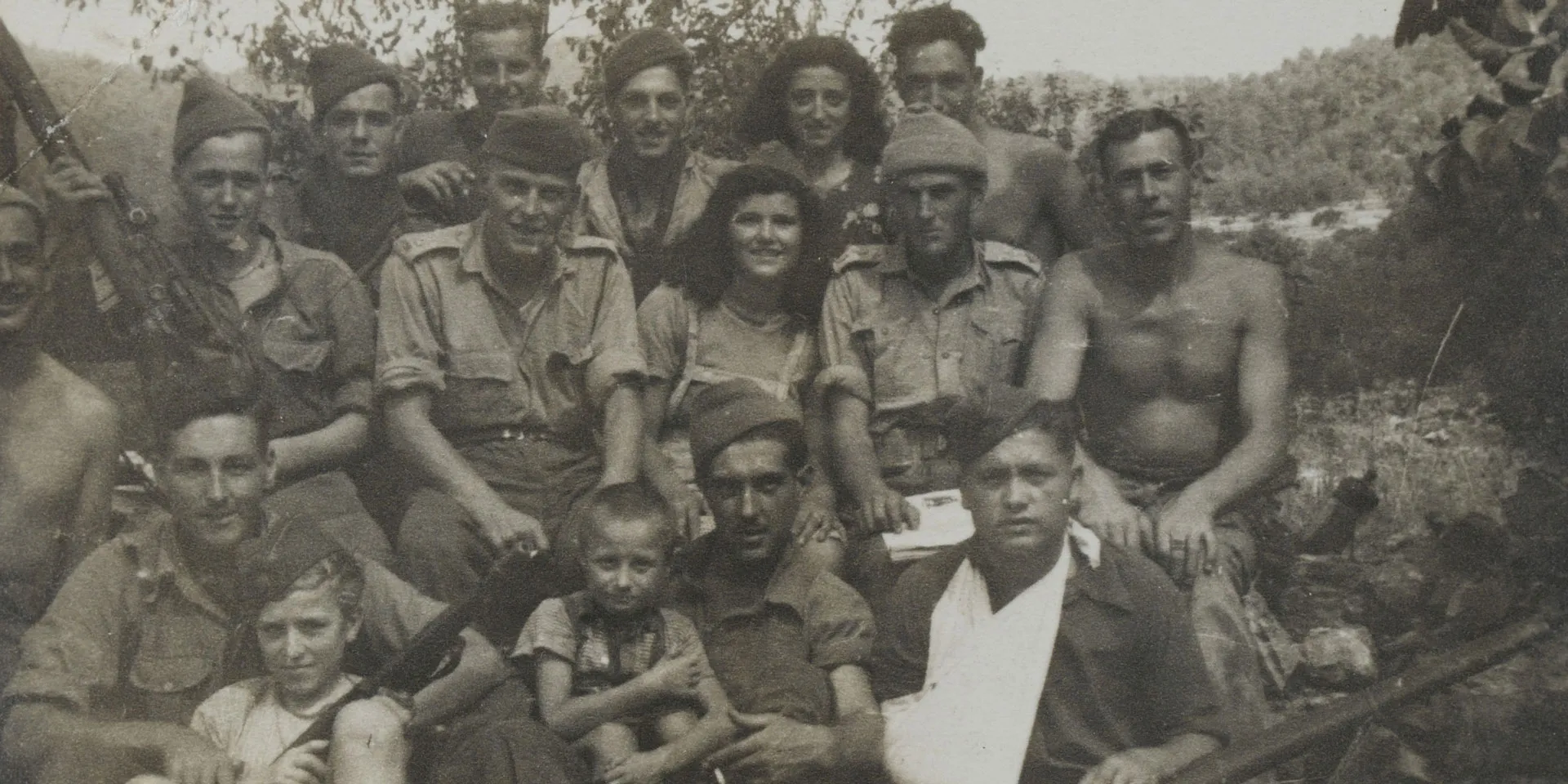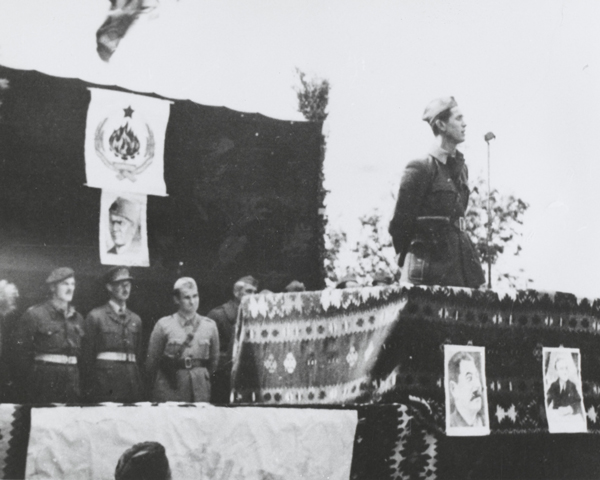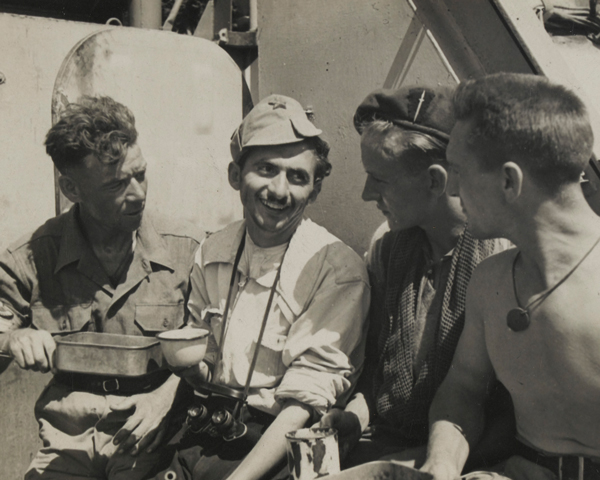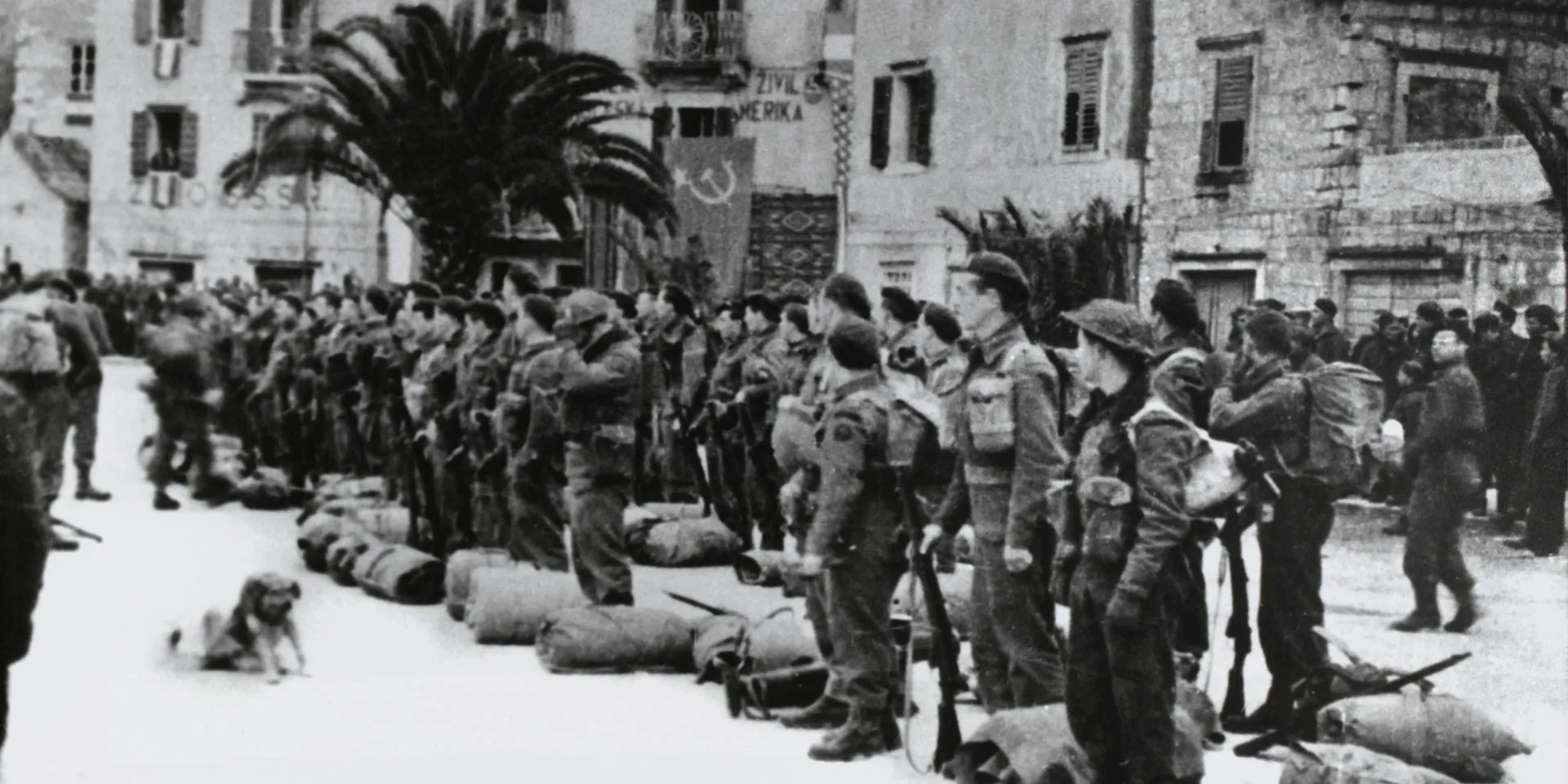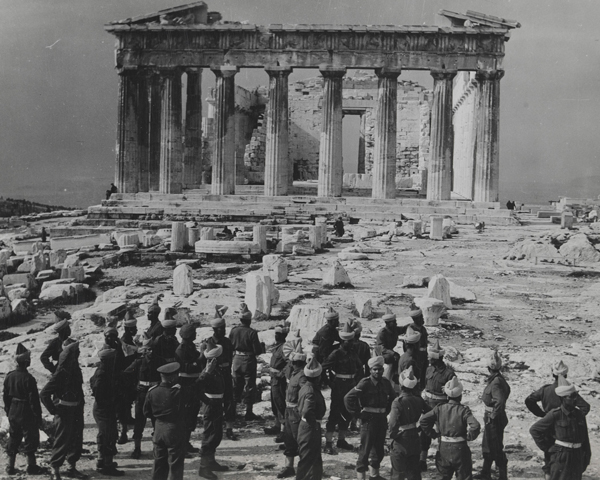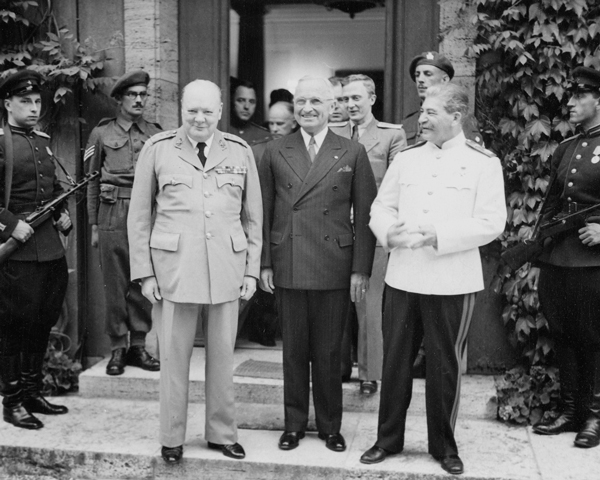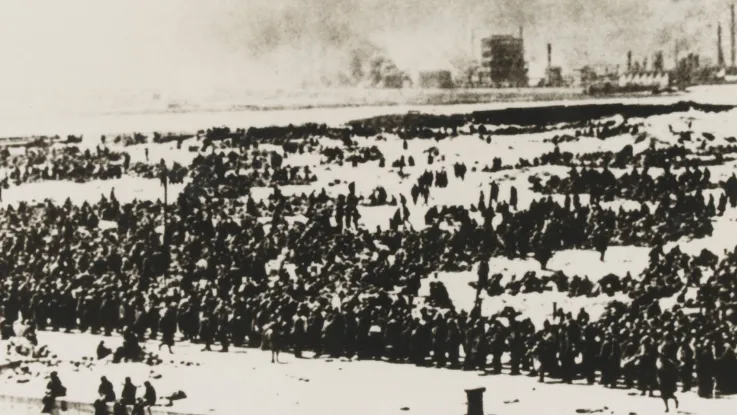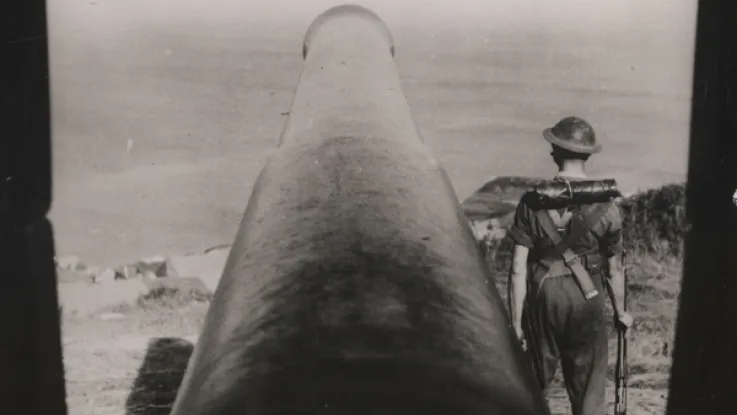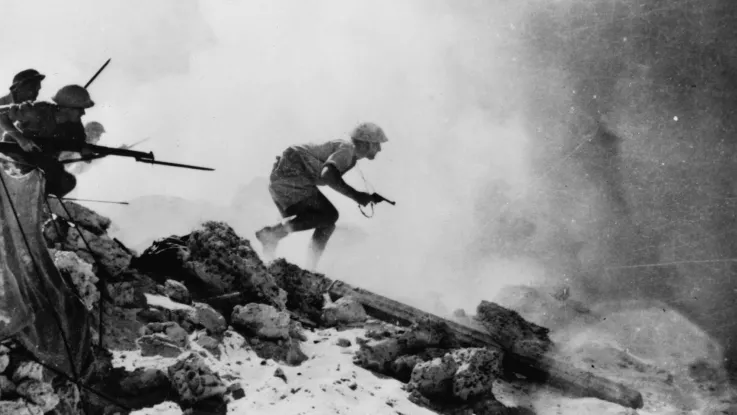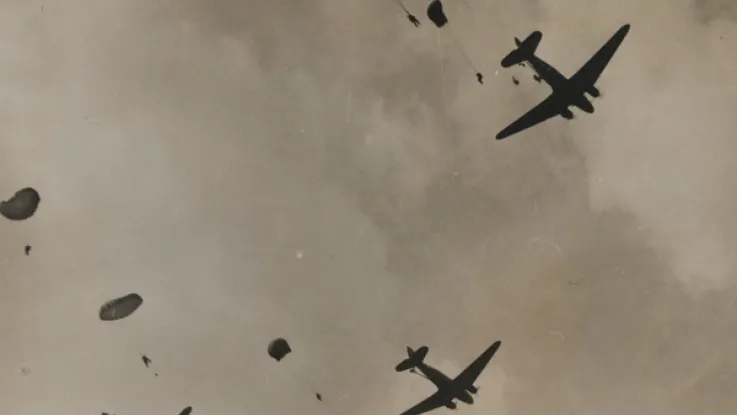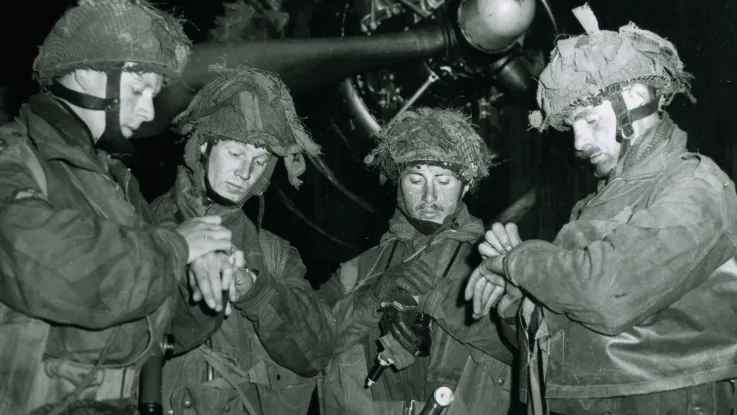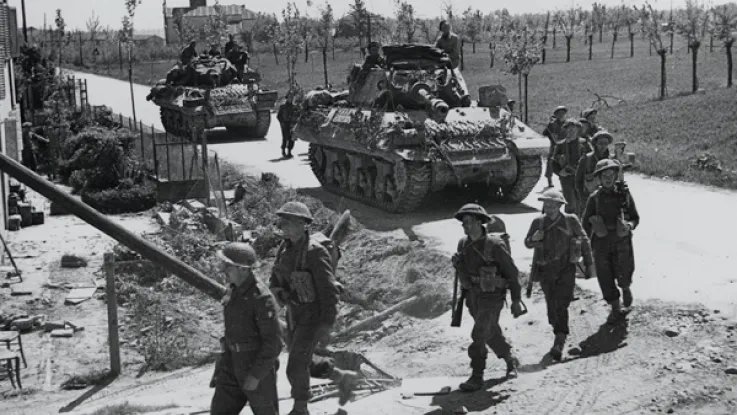Invasion
On 6 April 1941, the German Army, supported by Hungarian and Bulgarian forces, attacked Yugoslavia and Greece. Hitler launched the assault in order to overthrow the recently established pro-Allied government in Yugoslavia and to support Italy's stalling invasion of Greece, which had been launched in October 1940.
The operation would secure Germany's Balkan flank ahead of the planned invasion of the Soviet Union - scheduled for Spring 1941 - and safeguard its Romanian oil supplies from possible Allied air attack. Possession of the southern Balkans, commanding as they did the eastern Mediterranean, would also allow Germany to attack British lines of communications with the East.
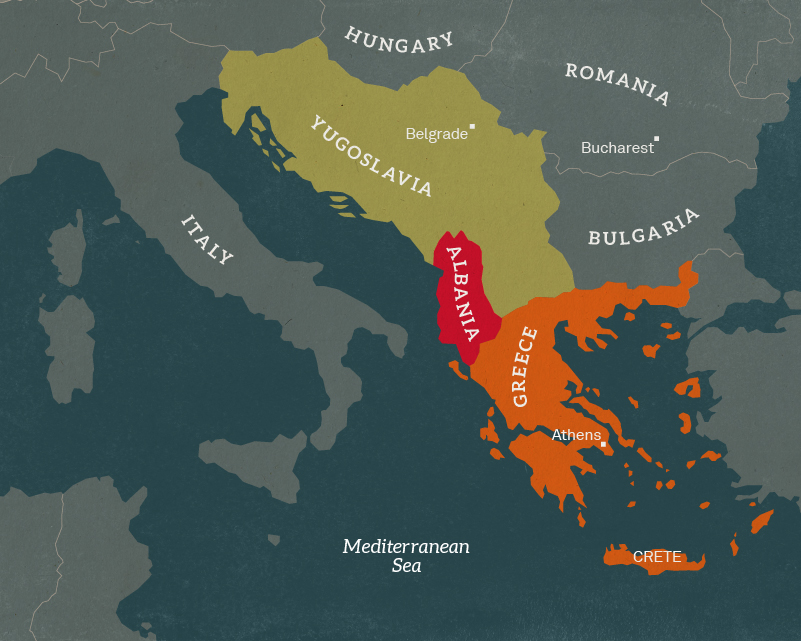
Map of the Balkans, 1941
Expeditionary Force
By 17 April 1941, a divided Yugoslavia had capitulated after the bombing of Belgrade and other major cities. A Nazi puppet state was created in Croatia, while the rest of Yugoslavia was dismembered by the Axis powers. Meanwhile, the Germans had pushed into northern Greece from Bulgaria and Yugoslavia.
Although the British were fully stretched fighting the Axis in North Africa, they had dispatched 58,000 Commonwealth troops to assist the Greeks in March 1941. This force, commanded by General Henry Maitland Wilson, included 1st Armoured Brigade, 6th Australian Division and 2nd New Zealand Division.
Allies in retreat
Despite the brave resistance of Greek and Commonwealth troops, the speed of the German ‘Blitzkrieg’ overwhelmed their defensive positions. The Germans quickly captured the southern Greek cities and the struggle ended with the fall of Athens on 27 April 1941.
The Allies lost around a quarter of their strength, including 11,000 men captured. Nevertheless, about 45,000 Allied soldiers were successfully evacuated to the island of Crete. German losses were about 11,500, with 2,500 dead.
Airborne attack
Following the occupation of the Greek mainland, the Germans invaded Crete on 20 May 1941 in a massive airborne assault. German paratroops attacked the airfields of Maleme, Rethimnon and Heraklion, but were met by stiff resistance from Allied soldiers and the Cretan population. The numerically superior Germans eventually overwhelmed the defenders and the Allies evacuated the island.
However, the loss of so many paratroops forced the Germans to abandon major airborne operations. General Kurt Student, commander of the invasion force, dubbed Crete 'the graveyard of the German paratroopers' and a 'disastrous victory'.
Resistance
In the aftermath of defeat, resistance forces gradually emerged in the remote mountain regions of Greece and Yugoslavia. A long and appallingly brutal guerrilla war raged across much of the region for the next four years.
Partisans and Chetniks
In late 1941, Britain recognised Dragoljub Mihailovic's Serbian nationalist Chetniks as the official resistance in Yugoslavia. Special Operations Executive (SOE) agents were sent to assist them in their fight against the Axis occupiers.
The Chetniks, however, soon became involved in a civil war against a rival resistance movement, the Partisans, led by Josip Broz, commonly known as Tito. This force was communist, multi-ethnic and fiercely opposed to Mihailovic's Yugoslav royalist movement.
Growing Chetnik collaboration with the Axis against Tito eventually persuaded Britain to switch its support to the Partisans in December 1943.
ELAS and EDES
The British faced a similar problem in Greece, where the two main military resistance groups were the communist-dominated Greek People's Liberation Army (ELAS) and the National Republican Greek League (EDES).
The two fought a bitter civil war until the Allies managed to broker a temporary ceasefire. But relations with both groups remained difficult for the rest of the conflict.
Special operations
Despite the infighting in both regions, SOE agents, Army and Royal Marines Commandos, the Special Boat Service (SBS) and the Special Air Service (SAS) all fought alongside the Greek and Yugoslav resistance.
They undertook raids against Axis military installations and engaged in acts of sabotage. Together, they forced the Axis to garrison Yugoslavia and Greece with hundreds of thousands of soldiers, preventing their use on other war fronts.
The cost was huge. The fighting in Yugoslavia resulted in around 1.2 million deaths out of a population of 14 million. Greek losses were over 300,000 out of a population of 7 million.
Liberation
By August 1944, the Soviet Red Army had advanced through Romania and into the Balkans. The Germans in Greece and Yugoslavia, in danger of being cut off, retreated into Austria and Hungary.
Allied troops landed in Greece in October, but they saw little fighting as the Germans were in full retreat. The resistance had already liberated most of the country. Tito's Partisans had done the same in Yugoslavia and entered Belgrade several hours before Soviet forces arrived.
Fighting continues
After the German withdrawal, the uneasy truce between the Greek resistance groups ended and a civil war began. The British tried to stay neutral, but they eventually intervened on the side of the EDES-dominated government.
In Athens, 5th Indian Infantry Brigade succeeded in clearing ELAS forces from the port area of Piraeus and reopened communications between the port and the main city. After further successful counter-insurgency operations, the Indian troops handed over control to Greek government forces and were withdrawn in mid-January 1945. Eventually, a new ceasefire was implemented.
ELAS abandoned
Reports of Allied soldiers fighting an anti-German resistance movement in Greece, while the war in Europe raged on, caused outrage in the British press. This could have been a severe blow to Allied unity.
However, the Soviets did not come to the aid of their fellow communists. Instead, they accepted that Greece belonged in the 'British sphere of influence' as defined in the agreement made between Winston Churchill and Joseph Stalin at Moscow in October 1944.
See it on display
Come and see the Military Medal awarded to Sergeant Herbert Chambers for his special operations service in Greece and discover more about the experiences of soldiers on all European fronts of the Second World War.

